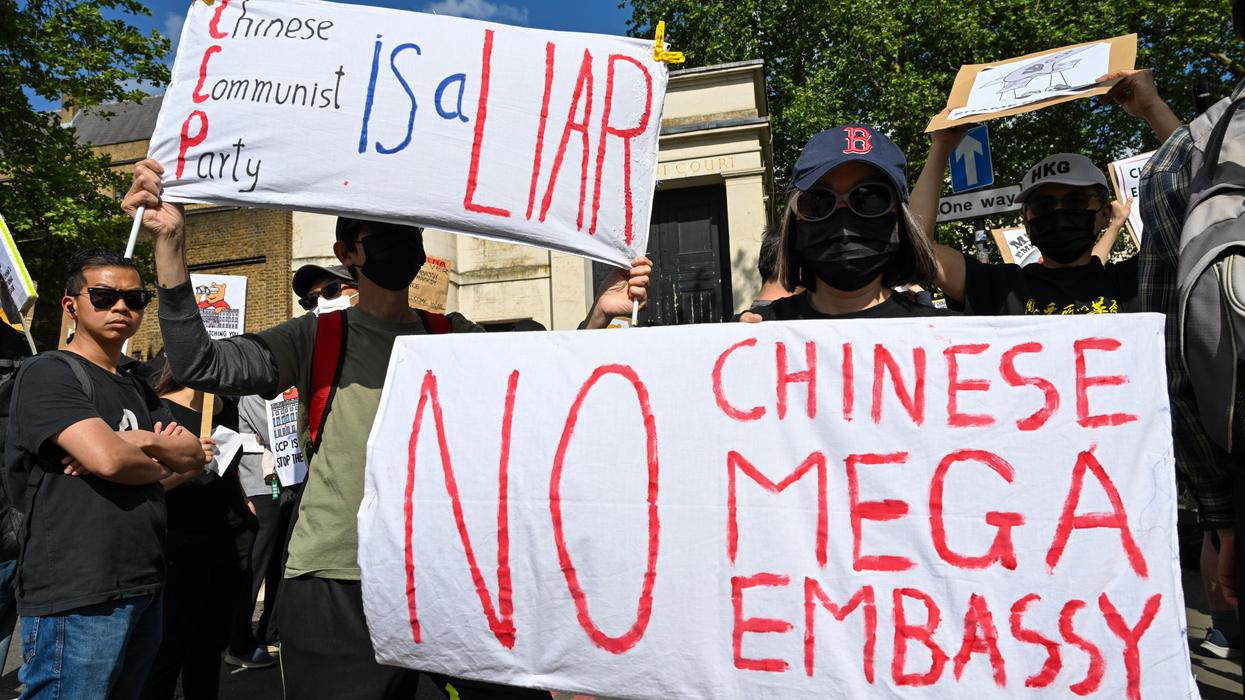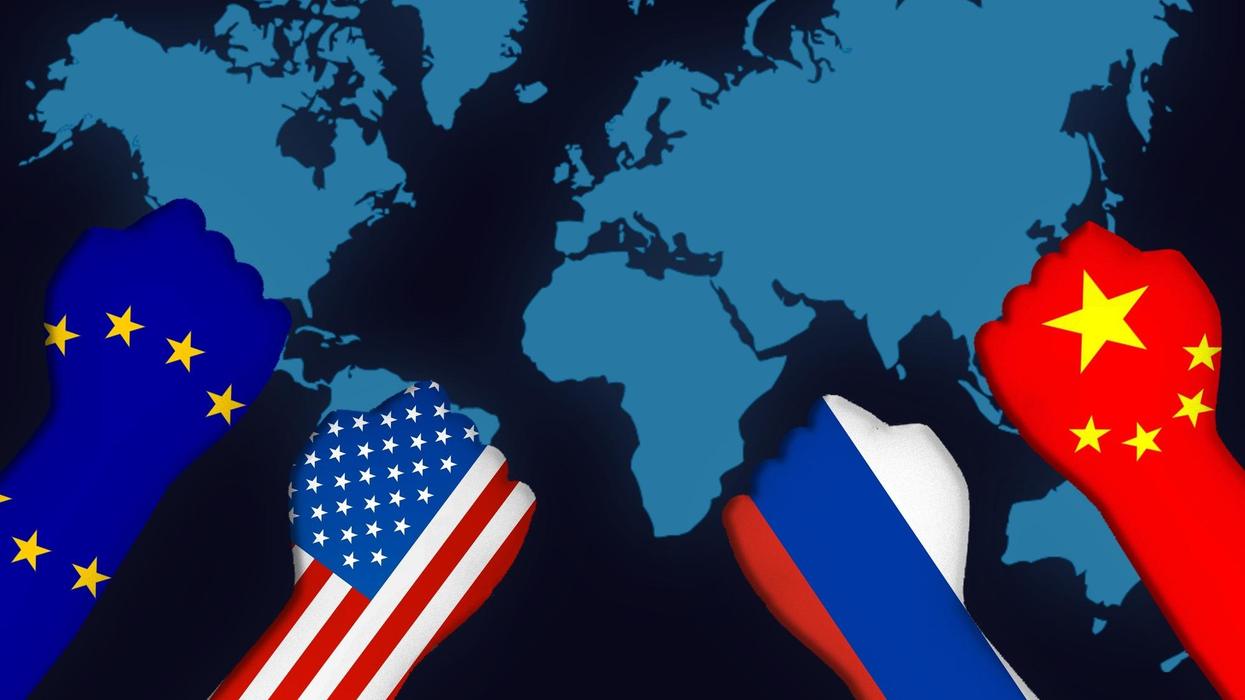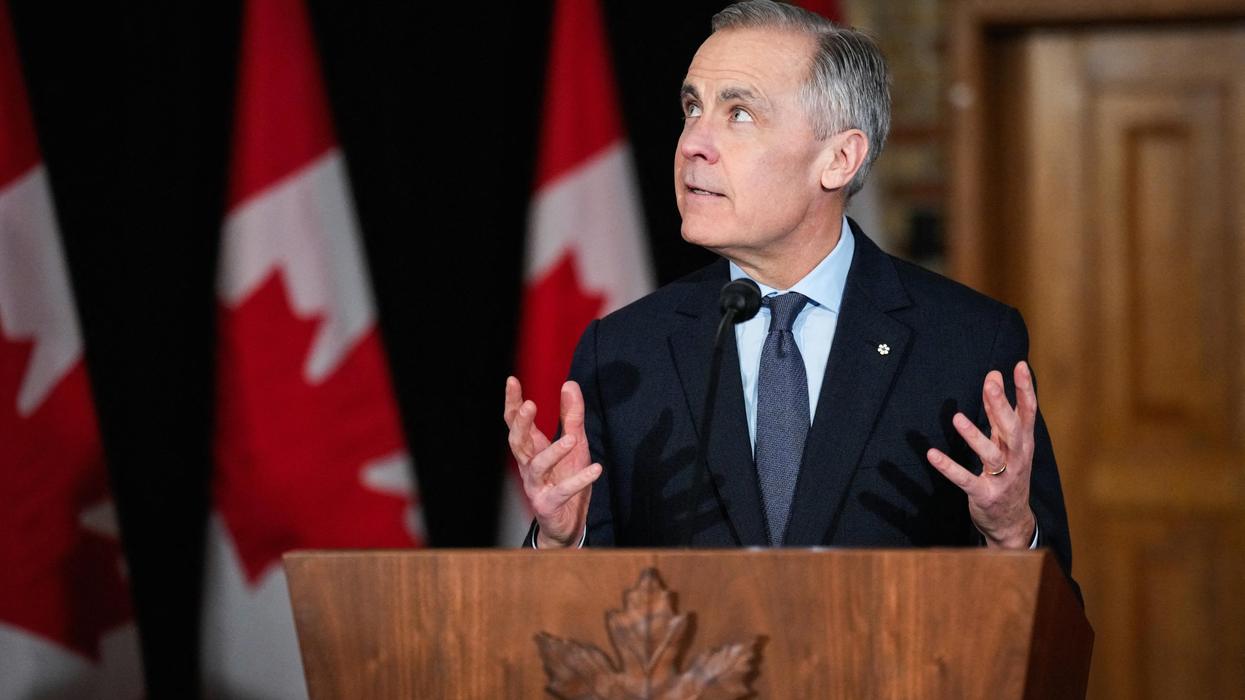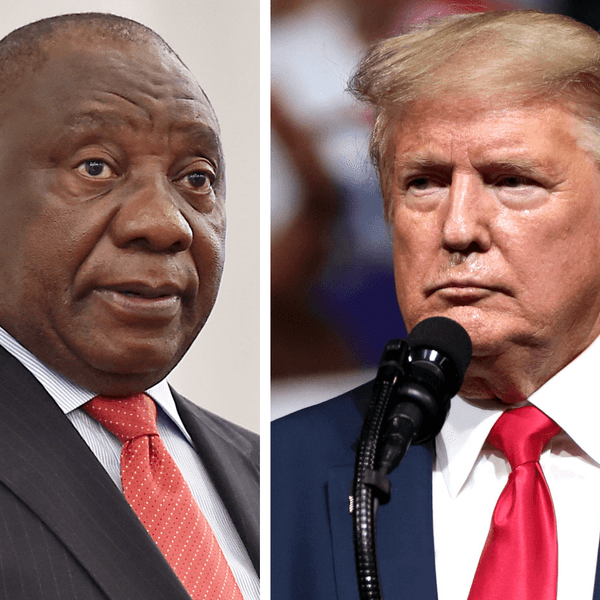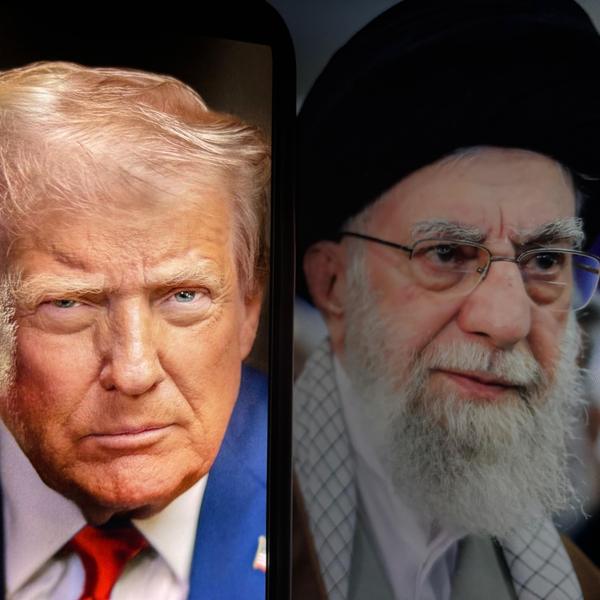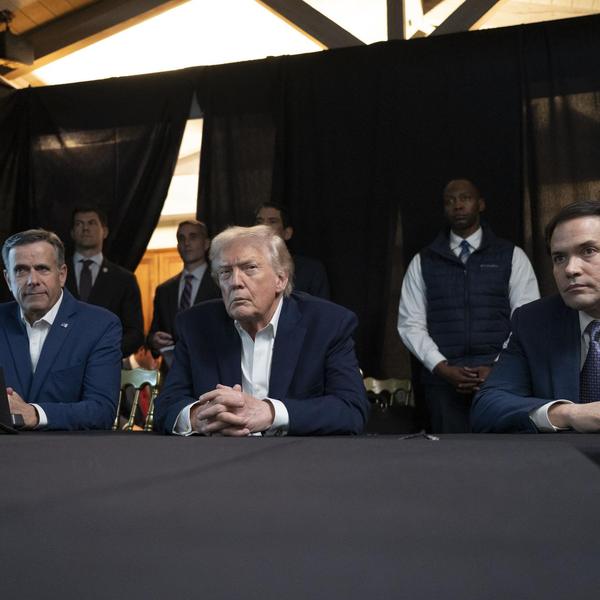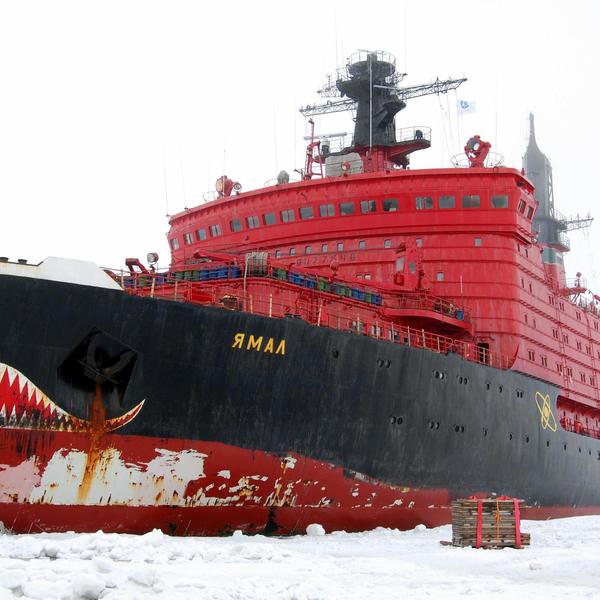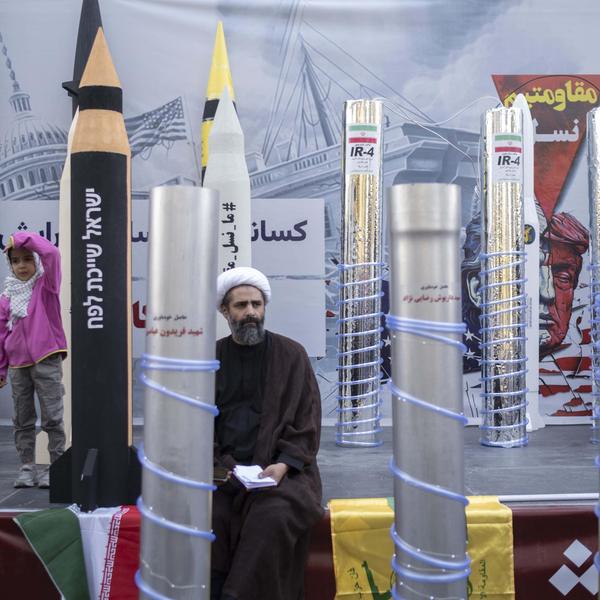Editor's Note, 2/24 6 a.m. EST: Russian President Vladimir Putin announced a "special military operation" against Ukraine Thursday morning local time and his forces have been entering the country and attacking military infrastructure across Ukraine, drawing international condemnation. This is a developing story.
***
The U.S. and French decision to call off talks with Russia this week is foolish and wrong. In the past, this would have been considered tantamount to a declaration of war — but NATO has said that it will not go to war, and Russia has not yet invaded Ukraine. It is essential therefore to go on talking in the hope that war in Ukraine can still be avoided. Breaking off talks is in the worst, most narcissistic tradition of contemporary U.S. diplomacy, whereby just talking to a rival state is seen as some kind of favor or concession.
Sanctions must be seen as a support to diplomatic efforts, not an end in themselves. Many Western leaders appear to have learned nothing from the experience of U.S. sanctions on countries like Cuba and North Korea (and indeed on Russia since 2014), which have taken on a life of their own and lasted for decades without ever achieving the goals for which they were imposed, let alone overthrowing the regimes in those countries.
Indeed, should an invasion occur, we would still need to negotiate with Russia in an effort to bring about a Russian withdrawal — as we negotiated with the North Vietnamese government during the Vietnam War, and with the Soviet government during the Soviet occupation of Afghanistan. A war in Ukraine is not going to end in unconditional Western victory along the lines of 1945. If it doesn’t go on in a frozen state forever (like the situation in the Korean peninsula) eventually, there will be some form of agreement.
The United States and other NATO governments are correct in imposing certain sanctions in response to the Russian recognition of the Donbas separatist republics, but also correct in still reserving their worst sanctions as a deterrent against full Russian invasion. Such an invasion has not yet occurred. Russian moves in the Donbas are only a limited escalation of a conflict that has been going on for the past eight years. An invasion of Ukraine would be on a different scale altogether.
Putin was unfortunately correct in saying that the Minsk II process for peace in the Donbas had failed. Ukraine has refused to implement basic provisions of the agreement; Ukrainian ministers have publicly ruled out autonomy for the Donbas; Ukrainian language laws have explicitly contradicted Minsk II’s guarantees of the linguistic and cultural rights of the Russian minority in Ukraine; and throughout the past year U.S. officials have been saying in private that Minsk II was dead.
Contrary to statements by Secretary of State Antony Blinken and other allied officials, the West has not yet offered a wider compromise that Russia might be able to accept. This is clear from the U.S. and NATO response to Russia’s original demarche (leaked to the Spanish newspaper El Pais), which consisted of little more than an offer to go on talking.
U.S. experts and former diplomats have suggested a moratorium on Ukraine’s NATO membership for a period of years to give time for wider security issues to be resolved, and a return to the letter of the CFE and INF treaties. Maybe, as some Western commentators have suggested, Russia would reject such a compromise and still opt for war; nobody can know this until we make the offer.
The West would sacrifice nothing by offering a moratorium on NATO membership, since it is universally recognized that Ukraine cannot possibly join NATO in the foreseeable future. We are risking disaster for Ukraine, severe economic disruption for the West, and great geopolitical gains for China, because we are not prepared to say publicly what all Western officials are saying privately.
The Biden administration began with a pledge to create a “Foreign Policy for the U.S. Middle Class.” If a war in Ukraine and massive Western sanctions lead to a steep rise in global and U.S. inflation, how will this help ordinary Americans? Is the Biden administration prepared to tell voters that they are suffering so that NATO can engage in an empty face-saving exercise?
The Biden administration has also talked of climate change as an “existential threat” to the United States. Since the crisis over Ukraine began, we have heard virtually nothing about climate change from Washington. Is the question of whether or not we continue to say that Ukraine can one day join NATO — when we know very well that it can’t — an existential issue for the United States and humanity?
NATO countries’ dispatch of small numbers of troops to NATO members in eastern Europe is purely symbolic, since Russia has no intention of attacking them. NATO countries’ withdrawal of their diplomats from Kyiv and observers from the OSCE mission is also symbolic — of cowardice, decadence, and a lack of any genuine commitment to Ukraine. U.S. diplomats, who have already fled Kyiv for the far west of Ukraine, have now been ordered to spend the night in Poland “for security reasons.” What sort of message about Western courage and resolve does that send to the rest of the world?
This crisis is in fact wonderful for NATO, which has never been an alliance that could wage war. Politicians can make blowhard speeches, and staff officers can move troops around on maps, in the serene confidence that they will never have to fight.
Ever since plans to enlarge NATO first emerged in the mid-1990s, Russian officials and leading Western experts have been warning publicly that this would lead to confrontation, and, if extended to Ukraine and Georgia, to war. That Western governments should now be expressing "incredulity" about the threat of war simply reflects their own complacent arrogance and refusal to listen to sound advice.
NATO expansion was sold to Western publics with the argument that it would lead to no additional costs and no additional risks. When at the NATO Bucharest summit the United States and United Kingdom pressed for a NATO Membership Action Plan for these countries, and the NATO secretariat fell into line. NATO made no contingency plans whatsoever for the future defence of these countries; and when four months later Georgia was emboldened to attack Russian troops in South Ossetia and was crushed by a Russian counter-attack, NATO did nothing to help.
To do so would have meant recognizing that European NATO members would have greatly to increase their military spending, and the United States would have to redeploy hundreds of thousands of troops to Europe. Nobody was willing honestly to confront this prospect.
Above all, to admit Ukraine and Georgia always meant being willing to fight Russia. NATO governments and the United States have stated repeatedly in recent weeks, they have no intention whatsoever of doing that. The idea of NATO membership for Georgia and Ukraine was thus always completely empty and insincere.
It meant fighting, because NATO membership for Georgia and Ukraine implied NATO backing Ukraine in expelling the Russian fleet from Sevastopol, and eliminating Russian influence in the Black Sea and Mediterranean. In the case of Georgia, it meant that NATO would insist on Abkhazia and South Ossetia returning to Georgia on Georgian terms — the equivalent of Russia insisting that Kosovo return to Serbia.
These are the kind of vital national interests over which great powers are willing to fight. The United States would certainly do so if faced with similar threats. At the heart of the present crisis lies one obvious fact. Russia regards excluding Ukraine from NATO and preserving Russian influence there as vital interests, for which it will fight. And under all the empty rhetoric, the West has no vital interest in Ukraine and therefore will not fight. And if we are not prepared to fight, then we should be prepared to compromise.


